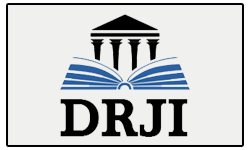Barriers to Uptake of Cataract Surgery in Southern Ethiopia
Abstract
Samuel Hailemichael Henok and Alemayehu Woldeyess Tefera
Purpose: This study aims to investigate factors contributing to delayed utilization of cataract services among patients attending a free surgical eye camp in Wolaita, southern Ethiopia.
Methods: A descriptive cross-sectional study was conducted at outreach eye camp in Wolaita Sodo organized by Cure Blindness Project during 12 - 17, 2023. Patients were interviewed using structured questionnaire to determine the reasons for delay in uptake of cataract surgeries. Descriptive analysis was conducted using SPSS version 26.
Results: A total of 160 study participants with operable age related cataract were recruited in the study with a mean age of 61.8 years (SD = 12.9), with a range of 40 - 90 years. Over 79% of the respondents were above 50 years of age. The male to female ratio was 1:0.86 and 19.4% of the subjects were blind bilaterally (best corrected visual acuity <3/60 in the better eye). The majority (63.1%) were illiterate. Eighty-two percent of the participants were enrolled in a community-based health insurance scheme. The most reported barriers for surgery included: insufficient family income (43.8%), worry about cost of surgery (25.6%), fear of undergoing surgery (15.0%), knowing someone with unsuccessful surgery (14.4%), and cataract was not mature (13.1%).
Conclusion: Inadequate family income and surgical cost are major factors delaying cataract surgery. To address these challenges, it is crucial to provide subsidies for surgical services and enhance both the quantity and quality of cataract outreach programs.



